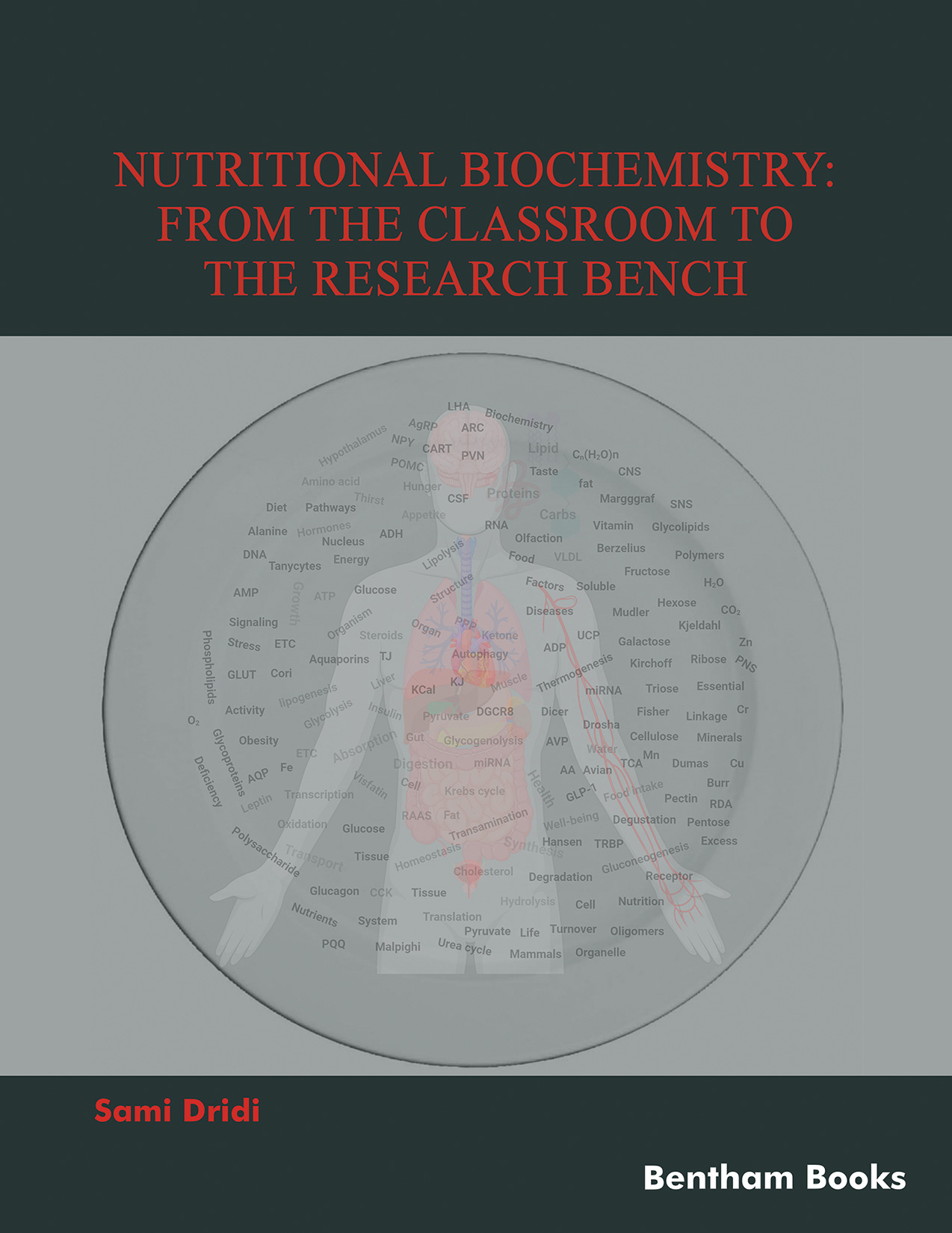Introduction
Nutritional Biochemistry: From the Classroom to the Research Bench aims to provide students and readers with a detailed, simplified, and comprehensive account of the relationship between nutrition and metabolism.
A key feature of this textbook is a comparative approach on the subject of nutritional biochemistry which helps to explain the differences in metabolism, nutrient requirement, and sometimes in the molecular pathways between mammalian and non-mammalian species.
Chapters give an overview of the need of food and water (chapter 1), before describing the cell and organ system components (chapter 2). The textbook then focuses on the regulation of food intake from the factors influencing appetite to the central and peripheral underlying mechanisms (chapters 3-5).
Water intake and regulation in the body are covered (chapter 6), along with key topics of protein, carbohydrate, and lipid metabolism (chapters 7, 8, and 9), including their digestion, absorption, transport, utilization, synthesis, degradation, and molecular regulation. A brief summary concludes the book (Chapter 10).
This book serves as a textbook for students and faculty in beginner courses in biochemistry and nutrition and is designed to give learners a comprehensive understanding of the topic to help them when considering a career in research.

